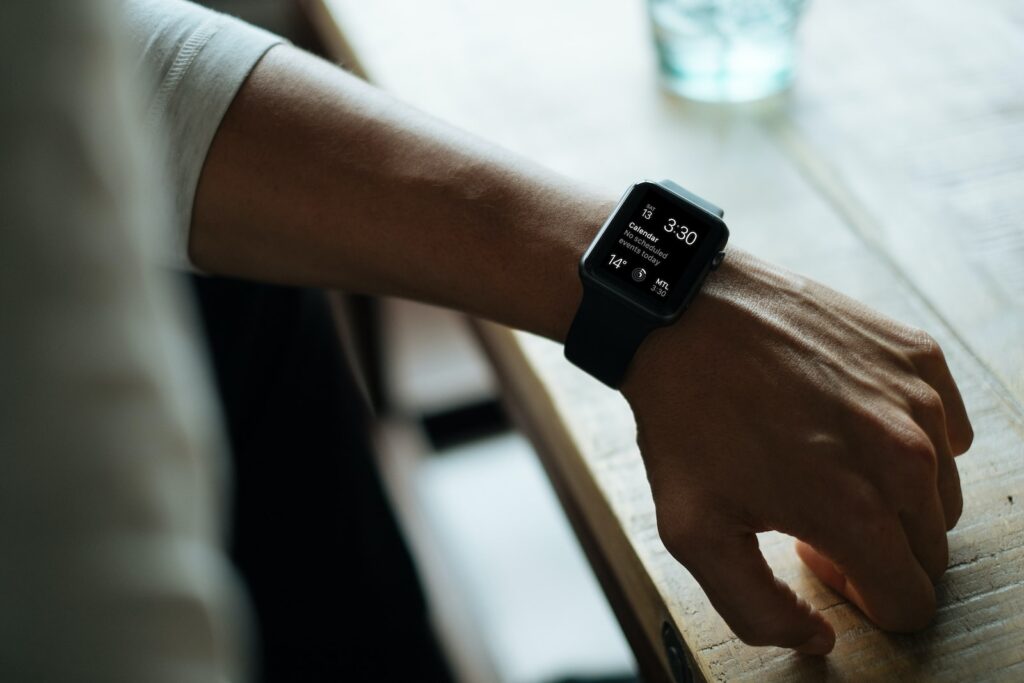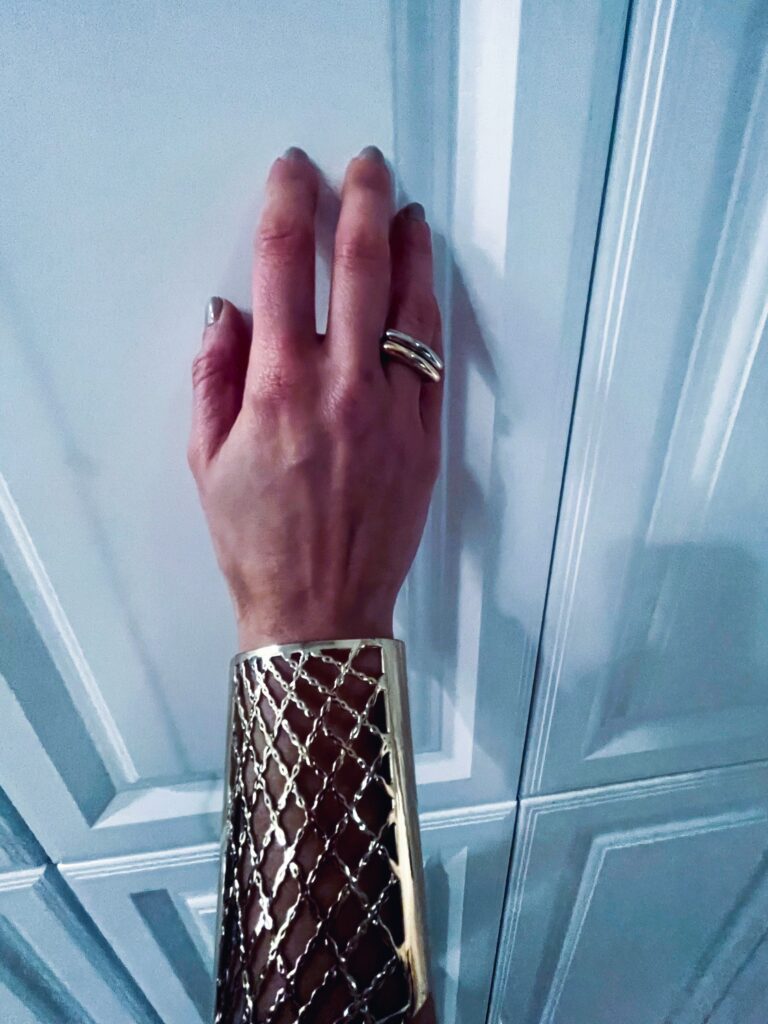I have not worn a wearable fitness device in years. I have no idea exactly how many hours I have slept, what my resting heart rate is, how many calories I burned at SoulCycle, or how many steps I made each day. In this case, ignorance is truly bliss. And more evidence is starting to show that it is worth considering whether these devices actually are really improving our overall health – including mental health.
Wearable fitness devices, such as fitness trackers and smartwatches, have become increa End-user spending on wearable devices worldwide hit an estimated $90 billion in 2022.
The popularity is not just about the products. The products simply represent a major part of the longstanding self-tracking or “quantified self” movement. Biohacking and using real-time information for human enhancement have been the rage. People are using wearables to measure their physical activity, sleep patterns, heart rate variability and overall wellness.
While these devices can be a helpful tool for monitoring your fitness and health, there are also several reasons why you may want to consider stopping wearing one. OR seeing what happens after a few weeks of not wearing one, like thes articles have captured:
- 5 reasons why I stopped wearing an Apple Watch – Medium
- I stopped wearing my smartwatch, and I haven’t looked back
- Why I Stopped Wearing my Apple Watch – Endorphitness
You get bombarded with data all the time
From the minute you wake up, the stats on your sleep show up – then you probably open up the app to see even more information, then you get sucked into even more apps and notifications – and so any attempt to have a peaceful Sunday arousing and taking it easy is sabotaged by the adrenaline responses and reactions you get by this overstimulation of data points.
The same applies when you are actually continuing with your kick-ass activities. I could retire at this point if I had a dollar for everytime I have glanced over at someone during a workout class and seen them checking their wearable, responding to a message or just been distracted by the “lighting up”. It is pretty hard to ignore and the information can sometimes cause odd behaviors. Most of the time starting a workout means starting a device, too. And meeting certain daily “numbers” goals can have the effect of constantly burning your head in the device and not actually focus on enjoying the activity that you are doing.
The data could be inaccurate
A Stanford University study found that some of the most popular wearable devices measured energy expenditure accurately, the study found. Even the most accurate device was off by an average of 27 percent. And the least accurate was off by 93 percent. The accuracy of this data can be affected by a number of factors, including the specific sensors used in the device, the calibration of the device, and the user’s own physical characteristics. Additionally, many wearables use algorithms to estimate certain metrics, such as calories burned, which can introduce errors. Factors such as body composition, muscle mass and even the temperature can also affect the accuracy of the data.
It could make you obsessed
One reason to stop wearing a fitness wearable device is that it can create an unhealthy obsession with tracking your progress. Constantly checking your device for updates on your fitness metrics can lead to an unhealthy focus on achieving specific numbers, rather than simply enjoying the process of exercising. This can also lead to feelings of disappointment or failure if you don’t meet your fitness goals.
Another reason to stop wearing a fitness wearable device is that it can negatively impact your mental health. Studies have shown that people who use these devices may experience increased levels of stress and anxiety, as well as decreased self-esteem. This can be especially true if you are comparing your progress to that of others, or if you are using the device to track your weight loss progress.
It can make you feel like you are being constantly monitored and judged
Mentally, the constant tracking and monitoring of fitness data can lead to feelings of anxiety and inadequacy. Individuals may become obsessed with hitting certain numbers or reaching certain goals, leading to feelings of failure and disappointment when they are not met.
Who hasn’t paced up and down a room to hit that step goal while brushing their teeth?????

Signs you have an unhealthy relationship / addiction to your device
Some “telltale” signs that you may need to re-evaluate your relationship with your wearable include: (from Very Well Health)
- You keep increasing the length of your workouts because your tracker makes you feel like you need to keep doing more
- You neglect friends and responsibilities so that you have more time to workout
- You feel anxious, irritable, or upset when you are not able to use your fitness device
- You feel like you don’t have control over your behavior; you use your device more than you intended or workout more than you planned
- Your fitness device uses up a great deal of time, interferes with other activities, or causes you to withdraw from other things you enjoy
- You keep using your device excessively even though these behaviors upset you or you know that they are unhealthy
- You feel very upset or even ashamed when you don’t reach your daily activity goal
Could a wearable save your life? There are always two sides
Although there is some activity indicating wearables could help diagnose high blood pressure or a heart attack (see these articles from Consumer Reports and Harvard health) , the technology is not quite there yet. Still, keeping an open mind about how useful technology can be is worthwhile. The purpose of this article was more about the “fitness stats” than any potential life-saving stats. In fact, wearables are part of frontier-level technology in more low-income countries to gather data about population health and identify trends to address global health issues.
How to replace the nakedness
Wearing a smartwatch, just like being on a smartphone, can be addictive, like smoking. Part of the reason smokers find it hard to quit besides the nicotine is missing the feeling of something in their hand. Similarly, if you take a break from your wearable, even the weight of something missing on your wrist can make you feel gangly and strange. So I suggest don’t remove, replace! Bust out that watch that was a wedding or graduation gift. For me, I love my statement bracelets – and this one I call my “gladiator” look which makes me feel like a fit badass:

Takeaway
Overall, while wearable fitness devices can be helpful for tracking and improving fitness levels, it is important to use them in moderation and to focus on overall health and well-being, rather than solely on numbers and data. It is also important to consult with a doctor or personal trainer before starting any new fitness routine or relying on any data from wearables to make significant health/lifestyle changes.











